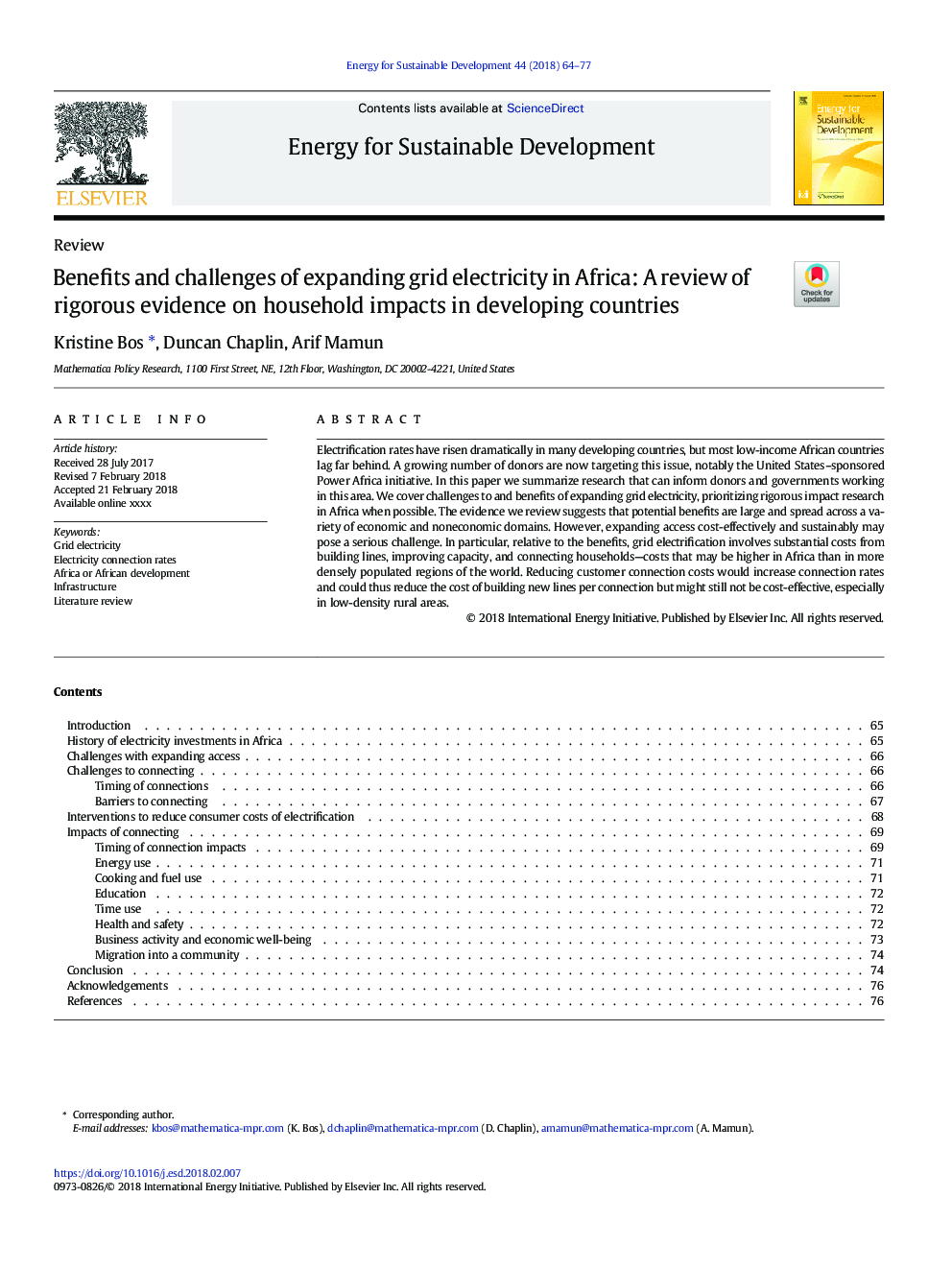| Article ID | Journal | Published Year | Pages | File Type |
|---|---|---|---|---|
| 7453584 | Energy for Sustainable Development | 2018 | 14 Pages |
Abstract
Electrification rates have risen dramatically in many developing countries, but most low-income African countries lag far behind. A growing number of donors are now targeting this issue, notably the United States-sponsored Power Africa initiative. In this paper we summarize research that can inform donors and governments working in this area. We cover challenges to and benefits of expanding grid electricity, prioritizing rigorous impact research in Africa when possible. The evidence we review suggests that potential benefits are large and spread across a variety of economic and noneconomic domains. However, expanding access cost-effectively and sustainably may pose a serious challenge. In particular, relative to the benefits, grid electrification involves substantial costs from building lines, improving capacity, and connecting households-costs that may be higher in Africa than in more densely populated regions of the world. Reducing customer connection costs would increase connection rates and could thus reduce the cost of building new lines per connection but might still not be cost-effective, especially in low-density rural areas.
Related Topics
Physical Sciences and Engineering
Energy
Energy (General)
Authors
Kristine Bos, Duncan Chaplin, Arif Mamun,
